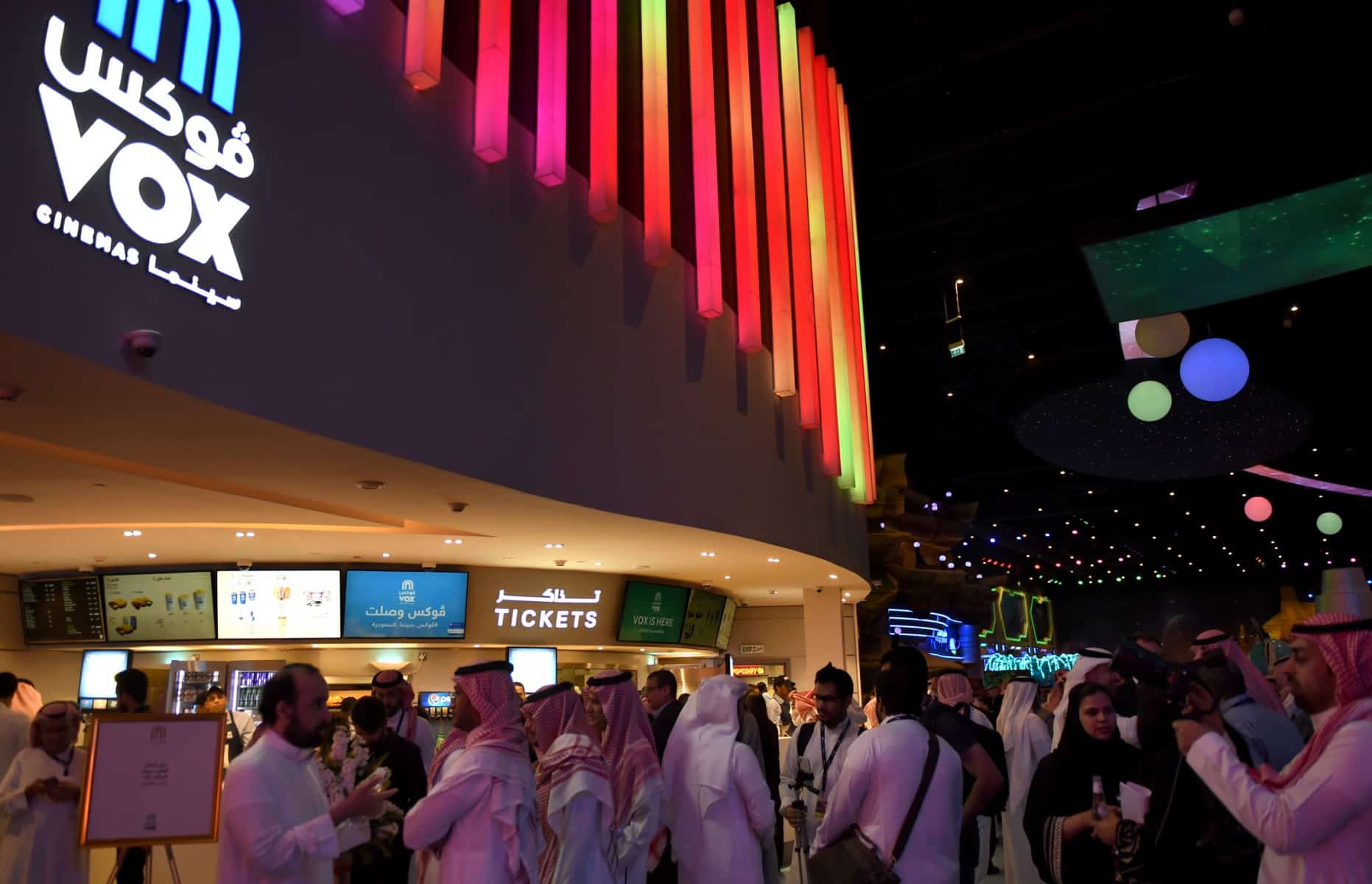RIYADH, SAUDI ARABIA — The Saudi cinema market has experienced rapid growth over the last five years, attracting the attention of investors who anticipate achieving box office revenues exceeding US$1bn by 2030, placing it among the top 20 global cinema markets.
According to a report issued by Entertainment Solution Services, the revenue of Saudi cinemas increased by 9.47 percent in 2022, reaching approximately US$240 million until December 25, 2022, compared to 2021’s revenue of US$232 million.
In 2022, more than 14 million cinema tickets were sold, up from 13 million in 2021, according to data from the General Authority for Audiovisual Media. In terms of revenues, the American film Top Gun: Maverick ranked first with US$22.4 million.
Egyptian movies account for 30 percent of the Saudi box office despite accounting for only 6.5 percent of the total films shown, including Tamer Hosni’s “I Love You,” which grossed US$15.6 million.
Local cinema
In 2022, 11 Saudi films were shown in theaters, compared to only seven in 2021, indicating that those in charge of the industry have realized the importance of local films that reflect the lives of the Saudi audience as a significant factor in the growth of the box office, after previously relying only on foreign films such as the American and Egyptian movies which were used to attract audiences since the first cinemas opened in the Kingdom in 2018.
The Ministry of Culture, through the “Saudi Film Authority” and the “Red Sea Film Festival Foundation,” is eager to encourage local production, recognizing that the film industry is one of the most rapidly expanding cultural sectors in the country and that it is one of the key pillars of the Kingdom’s plan to develop the entertainment industry, as part of Vision 2030.
Although the local film industry is still in its infancy, the goal is to increase the number of local films shown in theaters to 70 per year by 2030.
Various sources of support
The Ministry of Culture’s “Saudi Film Authority,” led by writer and director Abdullah Al Ayyaf, supports professional Saudi filmmakers through the “Light Program,” which provides non-refundable cash to film production companies and institutions in the Kingdom, as well as foreign production agencies with Saudi partners.
Last May, during the final session of the Cannes Film Festival, the authority announced the financial incentive program, which offers a cashback of up to 40 percent on any Saudi or non-Saudi film filmed in the Kingdom if it meets the program’s requirements.
Through the new film sector financing program, the government’s “Cultural Fund” will invest US$233 million over three years to strengthen the country’s cinema infrastructure and support production with grants and loans.
The Red Sea Festival
The Red Sea Festival also supports Arab and African filmmakers through the Red Sea Fund, which provides $14 million per year to support films in the development, production, and post-production stages for 100 projects directed by Saudi, Arab, and African filmmakers.
The festival has established itself as a platform for Saudi filmmakers. In its last edition, it screened seven feature films and 18 short films, including “The Valley Road,” “Between the Sands,” and “The Crow’s Song.”
The Red Sea Film Foundation has attended numerous international film festivals in the last two years, including those in Cannes, Berlin, Venice, and Toronto.
Moreover, international and regional broadcasting platforms, such as “Shahid,” “Vue,” and “Netflix,” are investing in Saudi productions to attract local subscribers, including “Al-Khalat +,” which is part of an 8-film deal signed with the Saudi production company “Telfaz 11” in 2020.
The Theaters
The Kingdom currently owns 63 cinema complexes, up from 54 in 2021, according to the Audiovisual Media Commission. The number of screens in the Kingdom has risen to 581.
According to the Entertainment Solution Services report, the General Authority for Audiovisual Media expects the country to have approximately 350 theaters and 2,500 cinema screens by 2030.
The state issued licenses to at least 11 cinema operators throughout 2022, the largest of which is the local operator Muvi Cinemas, which includes 21 cinemas and 205 screens in 10 cities, and that has the largest cinema in the Kingdom opened in January 2021, with 25 screens in Riyadh Boulevard City.
Following that is the Emirati company Vox Cinemas, which operates 154 screens in six Saudi cities, and the American AMC Cinemas, which operates 11 cinemas and is one of the largest cinema operators in the world.
Other operators are the Lebanese Empire Cinemas chain, the Mexican Cinepolis cinema, the UAE’s Reel Cinemas, and the Lebanese Grand Cinemas, which will enter the Saudi market soon.
On the other hand, some movie theater chains also supported Saudi films. For example, Muvi Cinemas announced in May that it would enter the production business through Muvi Studios to support Saudi and Arab movies.
Muvi Studios focuses on commercial films that can attract audiences, with a particular emphasis on comedy. By 2024, Muvi hopes to support 20 to 25 films per year, with a mix of Saudi and Egyptian films. Vox is also investing in production, as it announced at the Red Sea Festival last year that it would produce 25 Arab films within five years and revealed its first slate at this year’s festival, including a sequel to the popular Saudi comedy “Masameer.”








